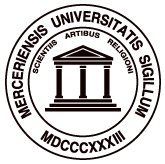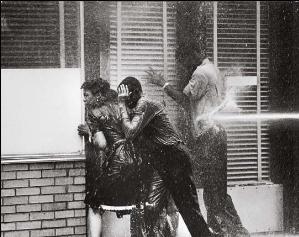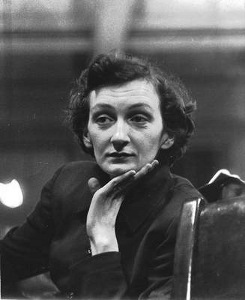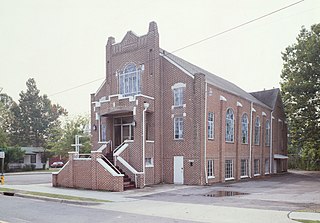
Mercer University is a private research university with its main campus in Macon, Georgia. Founded in 1833 as Mercer Institute and gaining university status in 1837, it is the oldest private university in the state and enrolls more than 9,000 students in 12 colleges and schools. Mercer is a member of the Georgia Research Alliance. It is classified as a "R2: Doctoral Universities — High research activity".

Freddie Lee Shuttlesworth was an American civil rights activist who led the fight against segregation and other forms of racism as a minister in Birmingham, Alabama. He was a co-founder of the Southern Christian Leadership Conference, initiated and was instrumental in the 1963 Birmingham Campaign, and continued to work against racism and for alleviation of the problems of the homeless in Cincinnati, Ohio, where he took up a pastorate in 1961. He returned to Birmingham after his retirement in 2007. He worked with Martin Luther King Jr. during the civil rights movement, though the two men often disagreed on tactics and approaches.

Ralph Emerson McGill was an American journalist and editorialist. An anti-segregationist editor he published the Atlanta Constitution newspaper. He was a member of the Peabody Awards Board of Jurors, serving from 1945 to 1968. He won a Pulitzer Prize for editorial writing in 1959.

The Birmingham campaign, also known as the Birmingham movement or Birmingham confrontation, was an American movement organized in early 1963 by the Southern Christian Leadership Conference (SCLC) to bring attention to the integration efforts of African Americans in Birmingham, Alabama.

Anne McCarty Braden was an American civil rights activist, journalist, and educator dedicated to the cause of racial equality. She and her husband bought a suburban house for an African American couple during Jim Crow. White neighbors burned crosses and bombed the house. During McCarthyism, Anne was charged with sedition. She wrote and organized for the southern civil rights movement before violations became national news. Anne was among nation's most outspoken white anti-racist activists, organizing across racial divides in environmental, women's, and anti-nuclear movements.
The Children's Crusade, or Children's March, was a march by over 5,000 school students in Birmingham, Alabama on May 2–10, 1963. Initiated and organized by Rev. James Bevel, the purpose of the march was to walk downtown to talk to the mayor about segregation in their city. Many children left their schools and were arrested, set free, and then arrested again the next day. The marches were stopped by the head of police, Bull Connor, who brought fire hoses to ward off the children and set police dogs after the children. This event compelled President John F. Kennedy to publicly support federal civil rights legislation and eventually led to the passage of the Civil Rights Act of 1964.

The Lillian Smith Book Awards' are an award which honors those authors who, through their outstanding writing about the American South, carry on Lillian Smith's legacy of elucidating the condition of racial and social inequity and proposing a vision of justice and human understanding. The award is jointly presented by the Southern Regional Council and the University of Georgia Libraries.
Raleigh Kirby Godsey, better known as R. Kirby Godsey, served as the seventeenth president of Mercer University, an independent, coeducational, private university, located in the U.S. state of Georgia, from July 1, 1979 to June 30, 2006, longer than any of his predecessors. Godsey is now university chancellor, professor, and special advisor to his successor, William D. Underwood.

Bethel Baptist Church is a Baptist church in the Collegeville neighborhood of Birmingham, Alabama. The church served as headquarters from 1956 to 1961 for the Alabama Christian Movement for Human Rights (ACMHR), which was led by Fred Shuttlesworth and active in the Birmingham during the Civil Rights Movement. The ACMHR focused on legal and nonviolent direct action against segregated accommodations, transportation, schools and employment discrimination. It played a crucial role in the 1961 Freedom Rides that resulted in federal enforcement of U.S. Supreme Court and Interstate Commerce Commission rulings to desegregate public transportation.
Joseph Millard Hendricks was a Columbus Roberts Professor of Christian ethics at Mercer University in Georgia, United States. He attended Mercer University as an undergraduate, obtained a Master of Divinity degree at Southern Baptist Theological Seminary, a Doctor of Law degree at Atlanta Law School and a Doctor of Philosophy degree at Emory University. An American Civil rights activist, humanitarian and philanthropist, Hendricks served as the university marshal, dean of students and professor emeritus of Christianity at Mercer University at its Macon campus in Georgia. Hendricks, or "Papa Joe" as he is affectionately known, was instrumental in achieving desegregation at Mercer University and contributed immensely to efforts that advanced racial justice in Macon and Middle Georgia.
Lola Mae Haynes Hendricks was corresponding secretary for Fred Shuttlesworth's Alabama Christian Movement for Human Rights from 1956 to 1963. She assisted Wyatt Walker in planning the early portions of the Southern Christian Leadership Conference's involvement in the 1963 Birmingham campaign during the Civil Rights Movement.
The Alabama Christian Movement for Human Rights (ACMHR) was an American civil rights organization in Birmingham, Alabama, which coordinated boycotts and sponsored federal lawsuits aimed at dismantling segregation in Birmingham and Alabama during the civil rights movement. Fred Shuttlesworth, pastor of Bethel Baptist Church, served as president of the group from its founding in 1956 until 1969. The ACMHR's crowning moment came during the pivotal Birmingham campaign which it coordinated along with the Southern Christian Leadership Conference during the spring of 1963.
Prathia Laura Ann Hall Wynn was an American leader and activist in the Civil Rights Movement, a womanist theologian, and ethicist. She was the key inspiration for Martin Luther King Jr.'s "I Have a Dream" speech.
The Georgia Council on Human Relations (GCHR) was a biracial group working against prejudice and discrimination due to race, religion, ethnicity, and nationality. Non-profit, interracial, and non-denominational, at its peak the GCHR operated in ten chapters across the state, including Albany, Atlanta, Augusta, Columbus, LaGrange, Macon, and Savannah. GCHR was the Southern Regional Council's Georgia affiliate.
Stone Johnson was an African-American activist in the Civil Rights Movement. A railway worker and union representative by trade, he got involved in the civil rights movement in Birmingham, Alabama in the mid 1950s, working with Fred Shuttlesworth. He started a civil rights organization called the Civil Rights Guards that protected homes and business involved in the movement, usually while armed.

James H. DeVotie (1814–1891) was a Baptist minister in the American South. Born in Oneida County, New York, he was a pastor in South Carolina, Alabama and Georgia. He was a co-founder of Howard College in Marion, Alabama, later known as Samford University near Birmingham. He was a long-time trustee of Mercer University in Macon, Georgia. He served as a Confederate chaplain during the Civil War. After the war, he worked for the Southern Baptist Convention.
This is a timeline of the civil rights movement in the United States, a nonviolent mid-20th century freedom movement to gain legal equality and the enforcement of constitutional rights for people of color. The goals of the movement included securing equal protection under the law, ending legally institutionalized racial discrimination, and gaining equal access to public facilities, education reform, fair housing, and the ability to vote.
Henlee Hulix Barnette was an American social activist, professor of Christian ethics, minister, and author. His first book, Introducing Christian Ethics (1961), became a standard text in his field. He marched with Martin Luther King Jr. and met with Nikita Khrushchev to set up a college student exchange program with the Soviet Union.

Joseph W. Ellwanger Jr. is a Lutheran pastor, author, and civil rights activist. He was a key figure in the Civil Rights Movement in Birmingham, Alabama, and the only white religious leader included in strategy meetings with Martin Luther King Jr.
Georgia Baptist College was a private grade school and college in Macon, Georgia, United States. It was founded in 1899 as Central City College and was renamed in 1938. It closed due to financial difficulties in 1956.








